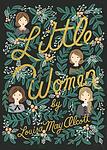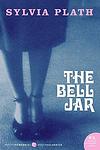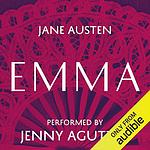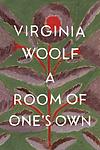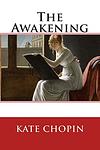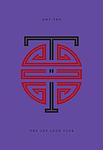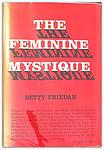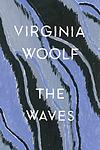The Greatest "Women's Studies" Books of All Time
Click to learn how this list is calculated.
This list represents a comprehensive and trusted collection of the greatest books. Developed through a specialized algorithm, it brings together 284 'best of' book lists to form a definitive guide to the world's most acclaimed books. For those interested in how these books are chosen, additional details can be found on the rankings page.
Genres
Women's Studies is a category of books that focuses on the experiences, perspectives, and contributions of women in society. It encompasses a wide range of topics, including gender roles, feminism, women's history, sexuality, and reproductive rights. The goal of Women's Studies is to promote a deeper understanding of the social, cultural, and political issues that affect women, and to empower women to challenge and change the status quo. Books in this category often offer critical analysis and insights into the ways in which gender intersects with other forms of oppression, such as race, class, and sexuality.
Countries
Date Range
Reading Statistics
Click the button below to see how many of these books you've read!
Download
If you're interested in downloading this list as a CSV file for use in a spreadsheet application, you can easily do so by clicking the button below. Please note that to ensure a manageable file size and faster download, the CSV will include details for only the first 500 books.
Download-
1. Wuthering Heights by Emily Brontë
This classic novel is a tale of love, revenge and social class set in the Yorkshire moors. It revolves around the intense, complex relationship between Catherine Earnshaw and Heathcliff, an orphan adopted by Catherine's father. Despite their deep affection for each other, Catherine marries Edgar Linton, a wealthy neighbor, leading Heathcliff to seek revenge on the two families. The story unfolds over two generations, reflecting the consequences of their choices and the destructive power of obsessive love.
-
2. Jane Eyre by Charlotte Bronte
The novel follows the life of Jane Eyre, an orphan who is mistreated by her relatives and sent to a charity school. As she grows up, Jane becomes a governess at Thornfield Hall, where she falls in love with the brooding and mysterious Mr. Rochester. However, she soon learns of a dark secret in his past that threatens their future together. The story is a profound exploration of a woman's self-discovery and her struggle for independence and love in a rigid Victorian society.
-
3. Beloved by Toni Morrison
This novel tells the story of a former African-American slave woman who, after escaping to Ohio, is haunted by the ghost of her deceased daughter. The protagonist is forced to confront her repressed memories and the horrific realities of her past, including the desperate act she committed to protect her children from a life of slavery. The narrative is a poignant exploration of the physical, emotional, and psychological scars inflicted by the institution of slavery, and the struggle for identity and self-acceptance in its aftermath.
-
4. Mrs. Dalloway by Virginia Woolf
The novel chronicles a day in the life of Clarissa Dalloway, a high-society woman in post-World War I England, as she prepares for a party she is hosting that evening. Throughout the day, she encounters various characters from her past, including a former suitor and a shell-shocked war veteran. The narrative jumps back and forth in time and in and out of different characters' minds, exploring themes of mental illness, existentialism, and the nature of time.
-
5. Gone With the Wind by Margaret Mitchell
Set against the backdrop of the American Civil War and Reconstruction era, this novel follows the life of a young Southern belle, who is known for her beauty and charm. Her life takes a turn when she is forced to make drastic changes to survive the war and its aftermath. The story revolves around her struggle to maintain her family's plantation and her complicated love life, especially her unrequited love for a married man, and her tumultuous relationship with a roguish blockade runner.
-
6. The Scarlet Letter by Nathaniel Hawthorne
Set in 17th-century Puritan Boston, this novel tells the story of a woman who conceives a daughter through an affair and struggles to create a new life of repentance and dignity. She is forced to wear a scarlet "A" on her dress as a sign of her adultery while her lover, a revered local minister, remains unnamed and unpunished. Throughout the book, themes of sin, legalism, and guilt are explored.
-
7. Little Women by Louisa May Alcott
This classic novel follows the lives of the four March sisters - Meg, Jo, Beth, and Amy - as they navigate the challenges and joys of adolescence and adulthood in 19th century New England. As they grow, they grapple with issues of poverty, gender roles, love, and personal identity, each in her own unique way. The story is a testament to the power of family, sisterhood, and female resilience in a time of societal constraints.
-
8. The Handmaid's Tale by Margaret Atwood
Set in a dystopian future, this novel presents a society where women are stripped of their rights and are classified into various roles based on their fertility and societal status. The protagonist is a handmaid, a class of women used solely for their reproductive capabilities by the ruling class. The story is a chilling exploration of the extreme end of misogyny, where women are reduced to their biological functions, and a critique of religious fundamentalism.
-
9. The Bell Jar by Sylvia Plath
The novel follows the story of a young woman who wins a guest editorship at a magazine in New York City and, after a series of personal and professional disappointments, suffers a mental breakdown and returns to her family, where she continues to struggle with depression and suicidal thoughts. The protagonist's experiences in psychiatric institutions and her attempts to reclaim her life are depicted with brutal honesty, making it a poignant exploration of mental illness and the societal pressures faced by women in the mid-20th century.
-
10. Emma by Jane Austen
The novel revolves around Emma, a well-meaning but disaster-prone matchmaker, who ignores her own romantic feelings while setting out to find a suitor for her friend Harriet. Her efforts cause more problems than solutions as she leaves a trail of mishaps behind her. As her plans go awry, Emma realizes that she herself may be the one in love. The book is a classic exploration of social manners, love, and marriage in 19th-century England.
-
11. The Golden Notebook by Doris Lessing
The novel centers around a woman named Anna Wulf, a writer who keeps four notebooks, each representing a different aspect of her life: her experiences in Africa, her current life in London, a novel she is writing, and her personal experiences. As Anna's mental state deteriorates, she attempts to unify her fragmented self in a fifth notebook, the golden notebook. The novel explores themes of mental breakdown, communism, the changing role of women, and the fear of nuclear war.
-
12. The Heart Is A Lonely Hunter by Carson McCullers
The novel explores the spiritual isolation of misfits and outcasts in a small town of the U.S. South. Its protagonist is a deaf-mute who becomes the confidant for various troubled souls including a black physician, a bitter labor activist, a lonely young girl, and a struggling café owner. Each pours their heart out to him, but he remains unable to respond, reflecting the deep human need for connection and understanding.
-
13. The Second Sex by Simone de Beauvoir
This influential work explores the treatment and perception of women throughout history, arguing that women have been repressed and defined only in relation to men. The author presents a detailed analysis of women's roles in society, family, work, and in the creation of their own identities. She discusses the concept of 'the other' and how this has been used to suppress women, while also examining the biological, psychological, and societal impacts of this oppression. The book is a seminal text in feminist theory, challenging traditional notions of femininity and calling for equality and freedom for women.
-
14. Orlando: A Biography by Virginia Woolf
The novel follows the life of a young nobleman in Elizabethan England who inexplicably transforms into a woman at the age of 30 and lives on for three centuries without aging. Throughout the centuries, the protagonist experiences various historical events, engages in relationships with both men and women, and explores the complexities of gender identity and sexuality. The book is an exploration of the fluidity of gender and time, as well as a critique of societal norms and expectations.
-
15. The House of Mirth by Edith Wharton
Set in the backdrop of New York's high society during the turn of the 20th century, the novel follows the life of Lily Bart, a beautiful but impoverished woman of social standing. As she navigates the pressures and expectations of her social circle, Lily grapples with the need to secure a wealthy husband to maintain her lifestyle. However, her romantic inclinations and her desire for personal freedom come into conflict with societal norms, leading to her tragic downfall.
-
16. A Room of One's Own by Virginia Woolf
This book is an extended essay that explores the topic of women in fiction, and the societal and economic hindrances that prevent them from achieving their full potential. The author uses a fictional narrator and narrative to explore the many difficulties that women writers faced throughout history, including the lack of education available to them and the societal expectations that limited their opportunities. The central argument is that a woman must have money and a room of her own if she is to write fiction.
-
17. The Awakening by Kate Chopin
"The Awakening" is a novel set in the late 19th century New Orleans, which explores the life of a young woman trapped in societal and marital expectations. She embarks on a journey of self-discovery and independence, defying the norms of her time. The protagonist challenges the traditional roles of women as she seeks personal fulfillment, experiences sexual awakening, and struggles with her desires and responsibilities. The book is a critique of the repressive social norms, particularly regarding women and marriage, of the Victorian era.
-
18. Women in Love by D. H. Lawrence
"Women in Love" is a novel that explores the complex relationships of two sisters, Ursula and Gudrun Brangwen, as they navigate their passions, desires, and connections with two men, Rupert Birkin and Gerald Crich, in post-World War I England. The novel delves deep into the psychological aspects of love, questioning traditional romantic love and proposing a more modern, individualistic approach to relationships. It also explores themes of industrialization, modernity, and the nature of human existence.
-
19. The God of Small Things by Arundhati Roy
This novel is a poignant tale of fraternal twins, a boy and a girl, who navigate through their childhood in Kerala, India, amidst a backdrop of political unrest and societal norms. The story, set in 1969, explores the complexities of their family's history and the tragic events that shape their lives. Their mother's transgression of caste and societal norms by having an affair with an untouchable leads to disastrous consequences, revealing the oppressive nature of the caste system and the destructive power of forbidden love. The novel also delves into themes of postcolonial identity, gender roles, and the lingering effects of trauma.
-
20. A Doll's House by Henrik Ibsen
This classic play focuses on the life of Nora Helmer, a woman living in a seemingly perfect marriage with her husband, Torvald. However, as the story unfolds, it becomes clear that Nora has been hiding a significant secret related to their finances. The revelation of this secret, and the subsequent fallout, challenges societal norms and expectations of the time, particularly in regards to gender roles and the institution of marriage. Nora's eventual decision to leave her husband and children in pursuit of her own independence serves as a powerful commentary on individual freedom and self-discovery.
-
21. The Joy Luck Club by Amy Tan
This novel explores the complex relationships between four Chinese-American mothers and their American-born daughters. The narrative switches between the perspectives of the eight women, revealing their pasts, their struggles with cultural identity, and the misunderstandings that have grown between the generations. The mothers, who all experienced hardship in their native China, want their daughters to have better lives and thus push them to excel in America. The daughters, in turn, struggle to reconcile their American surroundings with their Chinese heritage.
-
22. A Vindication of the Rights of Woman by Mary Wollstonecraft
This influential work from the late 18th century argues passionately for the education and societal recognition of women. The author asserts that women are not naturally inferior to men, but appear to be only because they lack education. She suggests that both men and women should be treated as rational beings and imagines a social order founded on reason. The book is considered one of the earliest works of feminist philosophy.
-
23. Nightwood by Djuna Barnes
"Nightwood" is a modernist novel that explores the complex relationships and sexuality of a group of Americans and Europeans living in Paris in the 1920s. The story primarily revolves around the tumultuous love affair between two women, one of whom is a married aristocrat. The narrative, known for its poetic and dense language, delves deep into the characters' psyches, exploring themes of identity, gender, and desire. The novel is also notable for its frank and groundbreaking depiction of homosexuality and transgender issues.
-
24. The Feminine Mystique by Betty Friedan
This groundbreaking book is a sociological examination of the dissatisfaction felt by American housewives in the mid-20th century. The author argues that women are not naturally fulfilled by devoting their lives to homemaking and child-rearing, challenging the widely accepted belief of the era. It explores the idea of the "problem that has no name" - the widespread unhappiness of women in the 1950s and early 1960s. The book is considered one of the catalysts of the second-wave feminist movement.
-
25. The Waves by Virginia Woolf
"The Waves" is a novel that follows the lives of six friends from childhood to old age, using an innovative narrative style that intertwines their individual voices into a collective stream of consciousness. The novel explores themes of individual identity, the passage of time, and the human condition, presenting a unique and poetic meditation on the nature of life and death.
Reading Statistics
Click the button below to see how many of these books you've read!
Download
If you're interested in downloading this list as a CSV file for use in a spreadsheet application, you can easily do so by clicking the button below. Please note that to ensure a manageable file size and faster download, the CSV will include details for only the first 500 books.
Download





